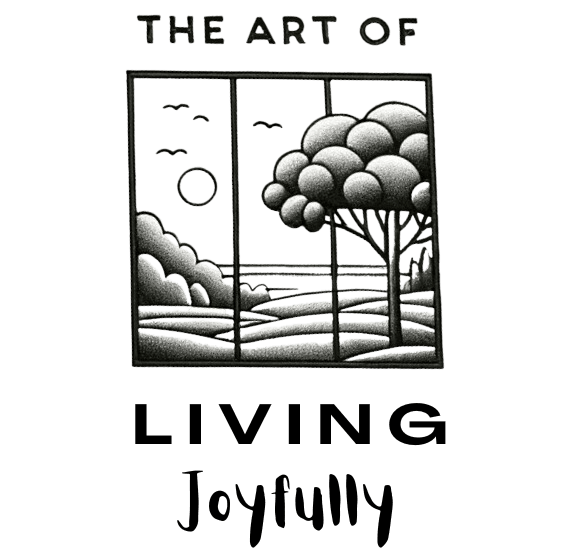Staying Mentally Sharp After 50: 5 Research-Backed Tips for Keeping Your Brain in Top Shape
Turning 50 can feel like a big milestone. But research shows it doesn’t have to mean your mental prowess goes downhill from here! Keeping your brain active and challenged is the key to maintaining a sharp mind well into your later years.
As a cognitive psychology coach specializing in healthy aging, I’ve helped many clients in their 50s and beyond improve their mental acuity. Here are my top science-backed tips for keeping your brain in tip-top shape through your 50s and beyond:
Continue Your Education
It’s never too late to learn something new! Challenge yourself by taking courses in subjects that fascinate you, whether that’s the history of impressionist art, quantum physics, or postmodern literature. Sign up for classes at your local community college, university extension, museum, or community center. Many offer discounted rates for seniors.
Multiple studies show continued learning supports cognitive reserve, allowing your brain to improvise new neural pathways. A 2019 study from Columbia University published in Neuropsychologia found older adults who regularly engaged in learning activities like reading books, taking courses, or learning a musical instrument had more resilient brains. This enabled them to maintain better memory and thinking skills compared to peers who did not continue learning [1].
Learning a new skill also boosts brain plasticity. A 2017 randomized controlled trial published in Neurobiology of Aging found adults aged 60-86 who learned quilting or digital photography had significant cognitive improvement compared to a control group. Not only did they perform better on memory tests, but also showed functional brain changes on MRI scans – their brains actually rewired to become more efficient [2].
This research confirms lifelong learning is key to staying mentally sharp, but how much is enough? And does the subject matter impact cognitive benefits? A 2020 literature review suggests learning challenging new skills that push your boundaries, done for at least 30-60 minutes several times per week, provides excellent mental stimulation [3]. But more research is still needed to confirm the ideal learning dosage and curriculum.
Try New Things
Routine can cause the brain to go on autopilot. Shake things up by challenging yourself with new hobbies, skills, and experiences. Learn to play chess, pick up watercolor painting, or try ballroom dancing. Pushing your brain outside its comfort zone helps build cognitive reserve.
A 2018 study published in Neurology analyzed cognitively demanding leisure activities in nearly 2,000 older adults over a 5-year period. Activities like quilting, photography, playing cards, and crafts reduced the risk of memory loss by up to 47% compared to primarily repetitive activities like watching TV. The more activities participants engaged in, the lower their risk of decline [4].
Trying new things provides novelty and mental stimulation. A 2021 study by University of Texas researchers found curiosity-driven behaviors like exploring new places led to greater neural flexibility and protection against Alzheimer’s-related cognitive decline in at-risk older adults [5].
How much novelty is ideal? Emerging research suggests consistently trying new activities or challenging your mind in new ways several times per week helps boost cognitive performance and brain resilience [6]. Mix up your routine by visiting new places, reading different books, taking alternate routes, or trying cuisines outside your comfort zone. Keep your brain on its toes!
Prioritize Physical Activity
What’s good for the heart is great for the head. Cardiovascular exercise delivers oxygen and nutrients that nourish the brain. It also stimulates the growth of new neurons through a process called neurogenesis and triggers the release of brain-derived neurotrophic factor (BDNF), a protein that activates brain cell growth.
The CDC recommends 150 minutes per week of moderate activity like brisk walking [7]. But research confirms any movement helps—a 2019 randomized controlled trial published in the British Journal of Sports Medicine found just 10 minutes of light exercise performed twice daily, like leisurely gardening or household chores, improved cognitive performance in older adults [8].
How much is optimal for brain health? A meta-analysis published in 2020 recommends aiming for 30-60 minutes of moderate to vigorous aerobic exercise at least 3 days per week for maximum cognitive benefit [9]. This could include activities you enjoy like brisk walking, swimming, cycling, dancing, yoga, or resistance training. Breaking it into short, consistent bursts seems most beneficial.
Stay Social
Meaningful social connections are mental fertilizer. Have coffee with friends, join a book club, or volunteer with a cause you care about. Large-scale studies show strong social ties lower dementia risk by up to 60% [10].
Socializing also provides cognitive challenges as you exchange ideas and perspectives. A 2020 study published in Frontiers in Psychology found engaging in more meaningful conversations predicted better memory performance over time in older adults [11]. Try to have quality social interactions with loved ones a few times per week for brain-boosting benefits.
But are some social activities better than others? Research is still untangling the nuances. A 2016 meta-analysis found social networking, artistic lessons, club meetings, and crafting gatherings all helped reduce risk of cognitive decline [12]. Seeking out group activities aligned with your interests seems to be key.
Prioritize Restorative Sleep
Sleep is when the brain consolidates memories, processes information, and rejuvenates—skimping on it can take a big toll on cognition [13]. How much do you need? Experts recommend adults aim for 7-9 hours per night [14]. Establish a regular sleep schedule and wind-down routine. Limit blue light exposure at least an hour before bed by turning off screens. Keep your bedroom cool (around 65°F), dark, and free of disruptions. Avoid caffeine, large meals, and strenuous activity before bedtime.
If you regularly have trouble sleeping, talk to your doctor. They can check for underlying issues like sleep apnea, restless leg syndrome, or other sleep disorders which may disrupt deep, restorative sleep stages needed for mental sharpness. Cognitive behavioral therapy for insomnia (CBTi) has also been shown highly effective for improving sleep quality in older adults [15].
The Keys to Lifelong Brain Health
Staying mentally sharp into your later decades is absolutely achievable through smart lifestyle choices. Feed your mind by keeping it curious, active, social, and well-rested. Don’t let a number define your mental prowess—with a commitment to lifelong learning and self-care, your brightest years may still be ahead!
Sources:
[1] https://www.ncbi.nlm.nih.gov/pmc/articles/PMC6391637/
[2] https://www.ncbi.nlm.nih.gov/pmc/articles/PMC5744214/
[3] https://www.ncbi.nlm.nih.gov/pmc/articles/PMC7462024/
[4] https://n.neurology.org/content/91/3/e255
[5] https://www.biorxiv.org/content/10.1101/2021.08.11.455984v1.full
[6] https://www.frontiersin.org/articles/10.3389/fnagi.2019.00342/full
[7] https://www.cdc.gov/physicalactivity/basics/adults/index.htm
[8] https://bjsm.bmj.com/content/53/10/655
[9] https://academic.oup.com/ageing/article/49/6/896/5835409
[10] https://www.ncbi.nlm.nih.gov/pmc/articles/PMC5369147/
[11] https://www.frontiersin.org/articles/10.3389/fpsyg.2020.00476/full
[12] https://jamanetwork.com/journals/jamainternalmedicine/fullarticle/2486950
[13] https://www.health.harvard.edu/mind-and-mood/sleep-and-mental-health
[14] https://www.cdc.gov/sleep/about_sleep/how_much_sleep.html
[15] https://www.ncbi.nlm.nih.gov/pmc/articles/PMC6910202/







